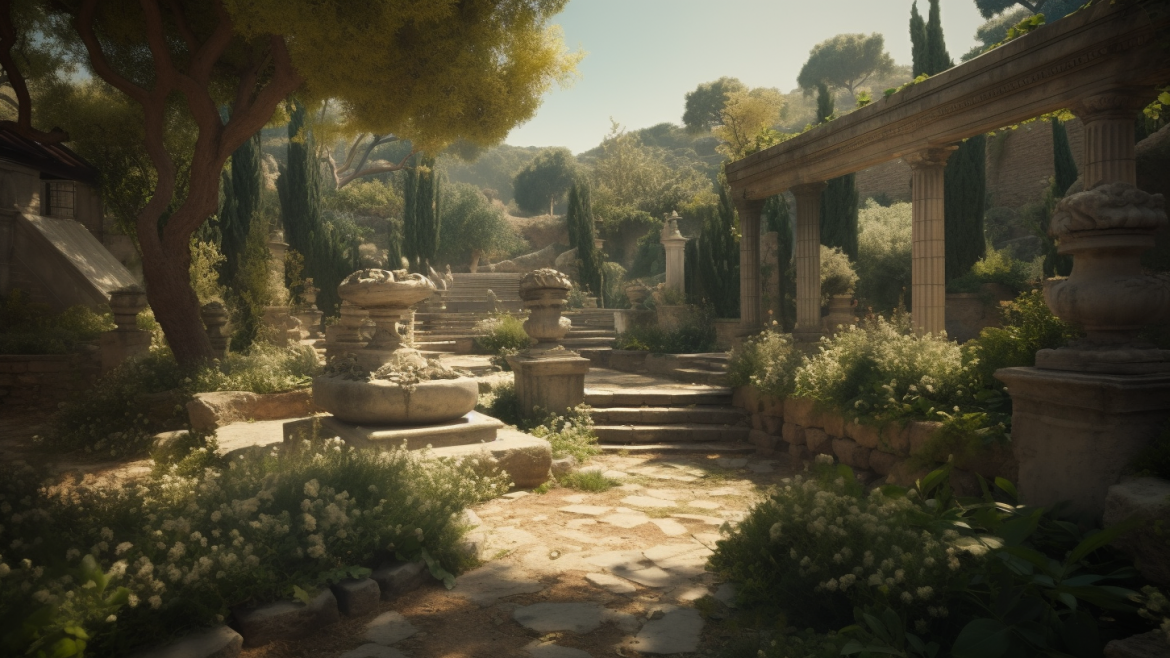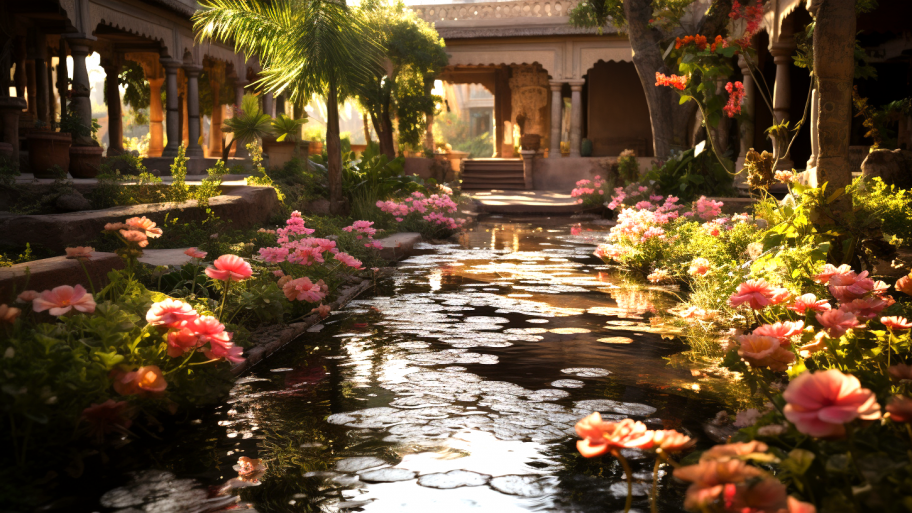Ancient Greek culture exhibited a profound appreciation for the natural world, and this was evident in their gardens and the role they played in society. Gardens were not only a source of food, medicine, and aesthetic pleasure, but also an integral part of Greek mythology, religion, and philosophy. They served as spaces for contemplation, worship, and an essential connection to the divine.
In Greek mythology, gardens held a prominent place, often symbolizing abundance, fertility, and harmony. The Hesperides, nymphs who tended to a sacred garden at the edge of the world, were charged with guarding the golden apples that granted immortality. This garden, belonging to the goddess Hera, was a symbol of eternal youth and divine bounty.
Another prominent figure in Greek mythology was Demeter, the goddess of agriculture, harvest, and fertility. She was revered for her role in the growth of crops, and her grief over the abduction of her daughter, Persephone, by Hades was believed to cause the barren winter months. The Eleusinian Mysteries, secret religious rites held in honor of Demeter and Persephone, celebrated the cycle of life, death, and rebirth, and the bountiful gifts of the earth.
Gardens also played a significant role in the daily lives of ancient Greeks, providing not only sustenance but also a space for intellectual and spiritual pursuits. The philosophers of ancient Greece, such as Plato, Socrates, and Aristotle, often held their teachings in the gardens, where they discussed their ideas in the serene embrace of nature. The famous Lyceum, founded by Aristotle, was situated within a grove dedicated to Apollo Lyceus, and the Academy, where Plato taught, was located within a sacred olive grove.
Moreover, the ancient Greeks believed in the concept of “kalos kai agathos,” which emphasized the harmony of the body, mind, and spirit. This ideal extended to the design and use of gardens, where they sought to create an environment that fostered physical, mental, and emotional well-being. This is reflected in the sacred groves and sanctuaries dedicated to gods and goddesses, such as the temple of Athena in Athens, which was surrounded by a grove of olive trees.
In summary, the gardens in ancient Greek culture held a profound significance, deeply intertwined with mythology, religion, and philosophy. They served as spaces for contemplation, worship, and an essential connection to the divine, reflecting the Greeks’ respect for the natural world and their quest for harmony in all aspects of life. In the next article, we will consider the role of olive trees and grapevines in ancient Greek society.




